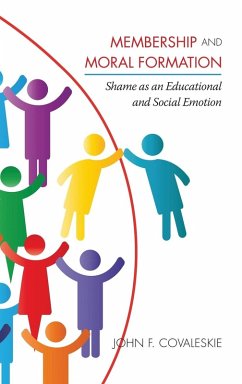This book is an attempt to relate moral formation to democratic life and to the emotional emotion of shame. The argument is that shame is essential to moral formation, that it tells us when we are violating our own moral norms. Contrary to common belief, I argue that shame is neither imposed on us by others (though it is certainly a product of our communal memberships) nor necessarily harmful. In fact I argue that shame not only can be beneficial for us, but that moral formation and growth are both inextricably linked to a proper sense of shame, a properly formed conscience. The process of moral formation is an important one for any society, but perhaps most of all for a democratic society. The foundational premise of democratic life is that we have the capacity to be self-governing, the desire to do the right thing, and the wisdom to discern what the right thing is. This is unlikely to happen unless there is a conscious effort to form the conscience of the young so that they can become democratic citizens. Which brings up, then, the question of moral education. Whatever it is that a particular society or community considers to be "moral," the question of moral education is how do members of the community come to be moral? Given that moral formation of the young is necessary, this discussion ends with a look at the practice of two exemplary democratic moral practitioners, Vivian Paley and Deborah Meier, whose pedagogy shows how formation of young consciences can be done by thoughtful adults with integrity.
Hinweis: Dieser Artikel kann nur an eine deutsche Lieferadresse ausgeliefert werden.
Hinweis: Dieser Artikel kann nur an eine deutsche Lieferadresse ausgeliefert werden.








